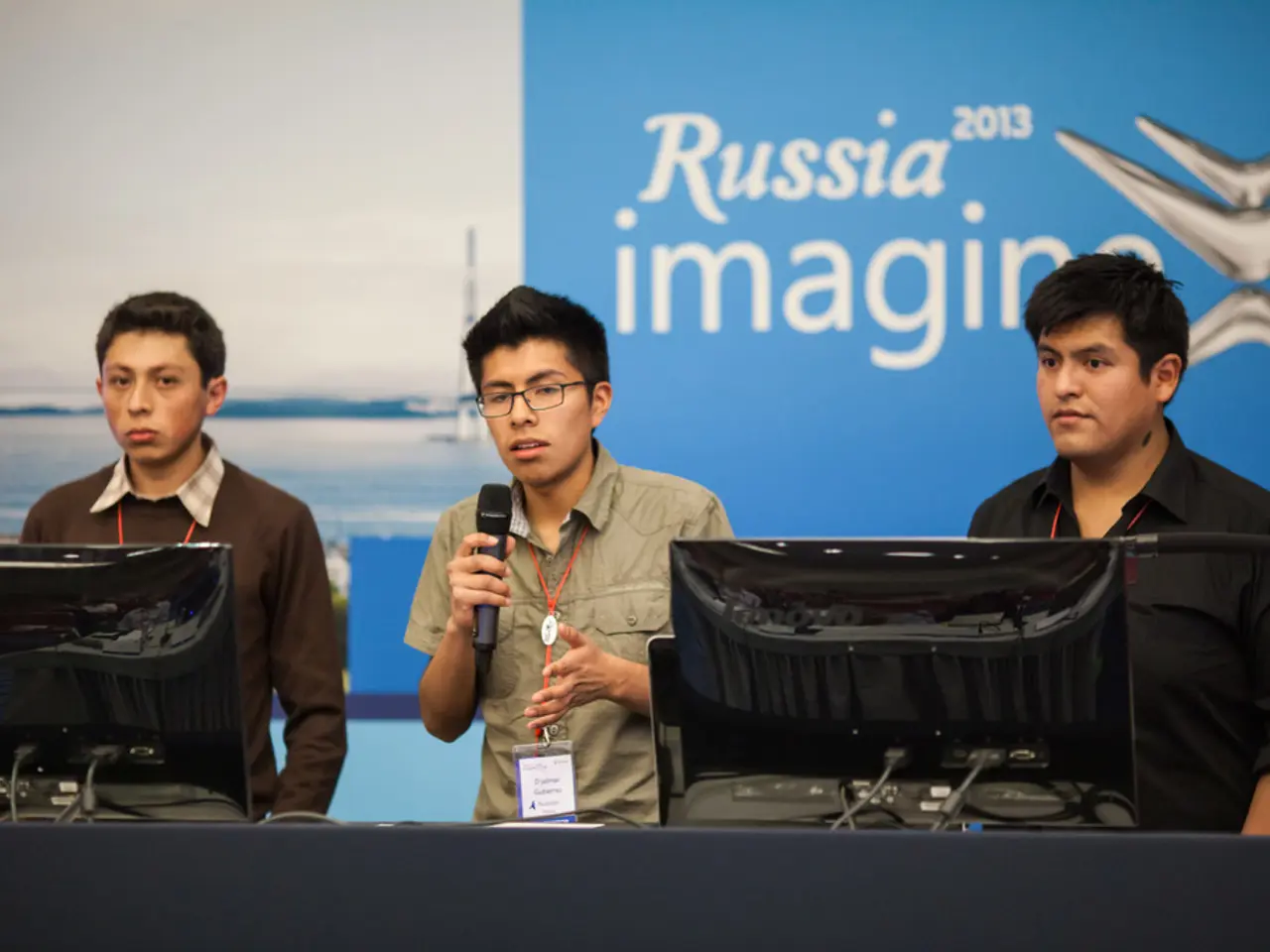Kiev Delayed Detainee Exchange and Corpse Collection, According to Medinsky.
In a developing situation, Ukraine and Russia are locked in a dispute over a scheduled prisoner exchange and the handover of fallen soldiers' bodies, agreed upon during a second round of direct peace talks in Istanbul on June 2, 2025 [1].
On July 16, Ukraine denied Russian accusations that it was delaying the exchange. The Coordinating Headquarters for the Treatment of Prisoners of War in Ukraine stated that Kyiv had already handed over a list of prisoners, including the seriously wounded and ill, but claimed that Russia submitted different lists that "do not meet" the agreed parameters [1]. The agency emphasized that Ukraine provided relevant comments to Russia and is now awaiting the next move from Moscow.
Russia, on the other hand, alleged that Ukraine unexpectedly postponed the transfers, leaving more than 1,200 bodies of Ukrainian soldiers in refrigerated trucks at an exchange point, with no Ukrainian representatives arriving to collect them [1]. Russian presidential aide Vladimir Medinsky urged Ukraine to "strictly adhere to the schedule and all agreements reached, and to immediately begin the exchange."
**Ukraine's Position**
Ukraine maintains that it is acting in good faith, having provided a list of prisoners consistent with the agreement, but accuses Russia of submitting alternative lists that deviate from the agreed terms [1]. This discrepancy, from Kyiv's perspective, is the real cause of the delay. Ukraine asserts it has given Russia feedback on the lists and is now waiting for Moscow to adjust its position before proceeding [1].
**Russia's Position**
Russia claims Ukraine unilaterally postponed the exchange, causing a backlog of bodies and prisoners at the designated transfer site. The Kremlin interprets this as a delay tactic by Kyiv [1].
The broader context suggests that both sides view prisoner exchanges not only as humanitarian gestures but also as tools in a larger diplomatic and informational war, with each accusing the other of using delays to gain a strategic advantage [2][3]. Without independent verification, the precise cause of the current delay remains contested, reflecting the deep mistrust and high stakes that continue to characterize Russian-Ukrainian negotiations.
The sides intend to carry out the largest prisoner exchange to date, with plans to exchange up to 1,200 people from each side, prioritizing categories such as wounded, seriously ill, and military personnel under 25 years old [1]. The first round of talks in Istanbul took place on May 16, following which Russia and Ukraine conducted a prisoner exchange under the formula "1,000 for 1,000." 1,212 bodies of Ukrainian soldiers arrived in the exchange area in refrigerated trucks [1]. Moscow provided Kyiv with a list of 640 prisoners of war for exchange [1]. Ukrainian Defense Minister Rustem Umierov confirmed the exchange of bodies on a 6,000 for 6,000 basis [1].
References: [1] Associated Press. (2025, July 16). Ukraine denies delaying prisoner exchange with Russia. The Guardian. Retrieved from https://www.theguardian.com/world/2025/jul/16/ukraine-denies-delaying-prisoner-exchange-with-russia [2] BBC News. (2025, July 17). Zelenskyy: Russia uses prisoner swaps to distract from military objectives. BBC. Retrieved from https://www.bbc.com/news/world-europe-58494372 [3] Radio Free Europe/Radio Liberty. (2025, July 17). Zelenskyy Says Russia Prolongs Intervals Between Exchanges to Destabilize Ukraine. RFERL. Retrieved from https://www.rferl.org/a/zelenskyy-says-russia-prolongs-intervals-between-exchanges-to-destabilize-ukraine/31346154.html
- The discrepancy between the lists of prisoners submitted by Ukraine and Russia, according to Ukraine, is causing the delay in the prisoner exchange, as Ukraine maintains it has acted in good faith but accuses Russia of deviating from the agreed terms.
- The ongoing prisoner exchange dispute, characterized by Ukraine's claims of Russia's deviation from the agreed terms and Russia's allegations of Ukraine's delay tactics, unfolds amidst a larger backdrop of politics, war-and-conflicts, and general-news, highlighting the deep mistrust and strategically significant nature of the negotiations in the Russian-Ukrainian relations.








